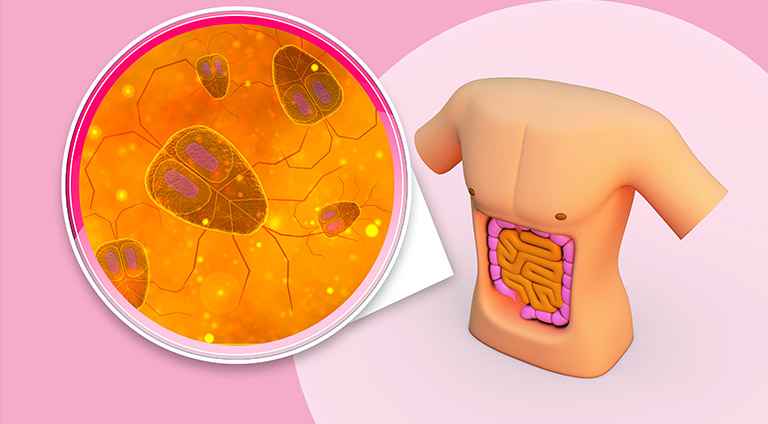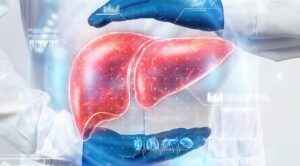Ulcerative colitis is very common throughout the world. Mostly found in developed countries of Europe and North America, it is not very popular in developing Asian countries. However, there have been limited studies conducted on the prevalence of ulcerative colitis in India, so we must not ignore the disease.
Ulcerative colitis is a type of chronic inflammatory bowel disease that mainly affects the large intestine and the rectum. Although the exact cause of ulcerative colitis is unknown, the abnormal immune response can be one answer. When the body’s immune system fails to distinguish between the good and bad bacteria and causes inflammation in the intestine, it causes the inner linings of the intestine to swell or become sore. This may even lead to ulcers. Continuous inflammation can be very dangerous because it can lead to life-threatening diseases such as colorectal cancer.
ULCERATIVE COLITIS: POSSIBLE CAUSES
Along with the abnormal immune response, ulcerative colitis can be caused by several factors. Let’s understand them in detail:
- Weak Immune System: Lack of white blood cells can reduce your power to fight bad bacteria, hence weakening you and leading to a weak immune system.
- Age: As per research, the disease is most likely to be developed between fifteen to thirty years of age. Additionally, the elder generation over the age of 60 may also be susceptible to it.
- Family History: Family medical history does play a role especially if a family member has been previously diagnosed with ulcerative colitis.
- Lifestyle: Stress, unhealthy food, lack of proper sleep, inadequate physical movement, etc. may lead to such conditions where one develops ulcerative colitis.
WHAT ARE THE SYMPTOMS OF ULCERATIVE COLITIS?
So how do we find out about the disease’s presence? Here are a few symptoms that can help you to know more about ulcerative colitis:
- Diarrhea and bloody bowel movements
- Abdominal pain and cramps
- Sudden urge to pass stools
- Fever and dehydration
- Fatigue and insomnia
- Unexplained weight loss and anemia
- Joint pain and skin sores
- Eye Pain, especially when exposed to bright light
WHAT ARE THE DIFFERENT TYPES OF ULCERATIVE COLITIS?
1. ULCERATIVE PROCTITIS
It is a type of ulcerative colitis (UC) that only affects the rectum or the part of your colon that is closest to the anus. It is often milder than other types of ulcerative colitis. However, if left untreated, it can cause issues to the patient including rectal bleeding, urges to relieve bowels, etc.
2. PROCTOSIGMOIDITIS
Another form of UC, proctosigmoiditis is visible in the sigmoid colon (S-shaped part of the large intestine) and the rectum. Diarrhea is one of the most common symptoms of the disease. The patient may see other issues such as belly cramps, rectal pain, weight loss, constipation, etc.
3. LEFT-SIDED COLITIS/DISTAL ULCERATIVE COLITIS
This disease causes pain and inflammation only on the left side or the distal part of the colon. It is the most common type of ulcerative colitis. Its symptoms are similar to other types of ulcerative colitis such as bloody diarrhea, abdominal cramps, and pain.
4. PANCOLITIS
The serious type of ulcerative colitis affects the entire colon and needs the immediate attention of a surgical gastroenterologist. It can lead to serious complications such as colorectal cancer.
WHAT IS THE DIAGNOSIS FOR ULCERATIVE COLITIS?
If you find any of the symptoms, visit a reputed and experienced GI surgeon to address the issue. The doctor may ask you more about your symptoms, conduct a check-up, and request the following tests:
- A blood test for signs of anemia or inflammation.
- A CT-scan of the abdominal area.
- A stool test to check for blood, infection, and parasites.
- A sigmoidoscopy to check the lower part of the colon (sigmoid colon) for ulcers and abnormal growth.
- Colonoscopy and biopsy to check the entire colon.
WHAT IS THE TREATMENT FOR ULCERATIVE COLITIS?
Ulcerative colitis is a chronic condition and the doctor will focus on the reduction of inflammation. The treatment will include medication to alleviate the symptoms. Once the patient is put on medicines, there is a lifelong follow-up and surveillance to prevent development of any serious inflammation.
Additionally, surgery may be done in situations when medicines fail to give desired results, there is a need to stop the spread of the disease to the entire colon, or surveillance reveals either cancer or a pre-cancerous stage. In some situations, toxic megacolon or steroid-resistant disease may compel to your surgical gastroenterologist to conduct the surgery.
It can include removing the entire colon, although the decision will depend on several factors including your health and the spread of UC.
There are multiple causes of ulcerative colitis and currently, there is no cure for the disease. However, you can focus on reducing flareups and maintain a healthy lifestyle to prevent the spread of ulcerative colitis. Eat high-fiber, nutritious food, and ensure regular physical movement to avoid triggering your symptoms.
If you find several symptoms of ulcerative colitis disease, do not ignore them. Consult a surgical gastroenterologist and follow the prescribed guidelines to reduce the effect of inflammation and prevent the spread of the disease. Ensure immediate treatment of ulcerative colitis to lead a healthy life.





